Green tea, known for its myriad health benefits and soothing taste, has been cherished for centuries. Whether you’re a seasoned tea connoisseur or a newcomer looking to explore this delightful beverage, selecting the right brand can make a significant difference in your tea-drinking experience. Here, we review 10 popular green tea brands, highlighting their positives and negatives to help you make an informed choice.
1. Matcha Konomi
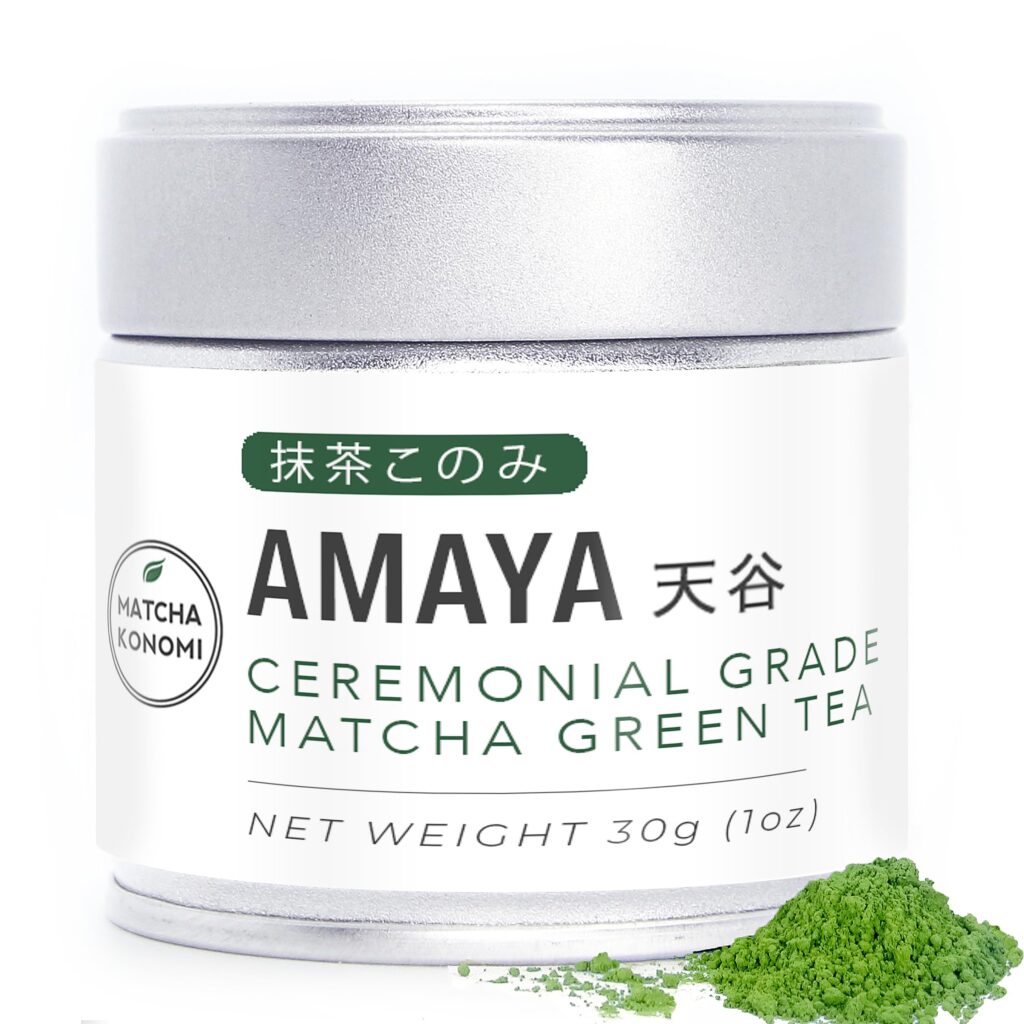
Likes
- High Quality: Matcha Konomi is known for its premium ceremonial grade matcha, which is made from the youngest tea leaves, carefully ground into a fine powder. The vibrant green color is a hallmark of its freshness and purity, indicative of the minimal processing and high chlorophyll content.
- Rich Flavor: The flavor profile of Matcha Konomi is rich and complex, with a sweet, earthy taste complemented by a creamy texture. The umami undertone is a result of the high concentration of amino acids, making it suitable for both traditional tea ceremonies and modern culinary applications.
- Health Benefits: Matcha Konomi is packed with antioxidants, particularly catechins like EGCG, which help in fighting free radicals. Additionally, it provides a gentle energy boost due to its combination of caffeine and L-theanine, promoting calm alertness without the jitters often associated with coffee.
Dislikes
- Price: The meticulous cultivation and processing of Matcha Konomi result in a higher price point, making it less accessible for casual drinkers or those on a tight budget.
- Availability: Matcha Konomi’s premium quality means it is often sold in specialized stores or online, potentially limiting its accessibility for those who prefer to shop locally.
2. Numi Organic Tea
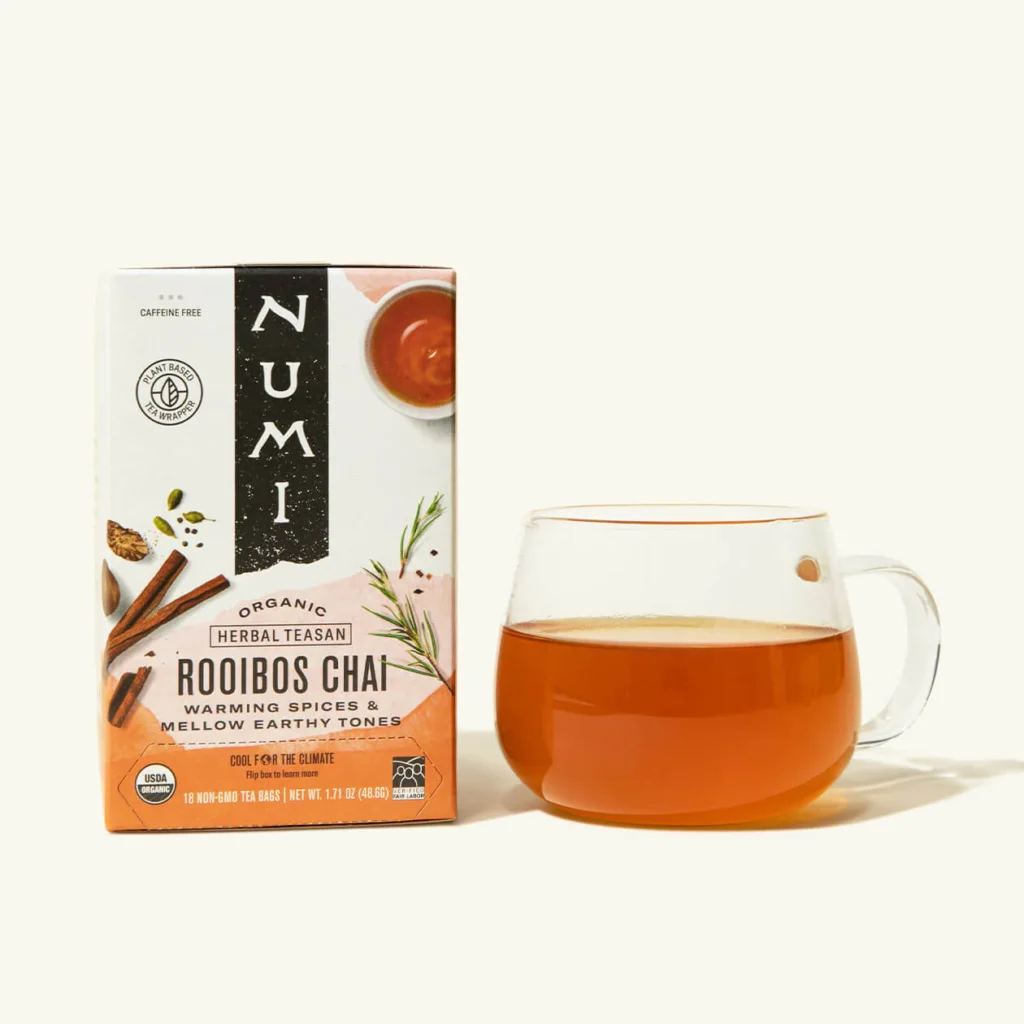
Likes
- Organic Certification: Numi Organic Tea is committed to using 100% organic ingredients, ensuring that their products are free from pesticides and synthetic fertilizers. This commitment not only benefits consumer health but also supports sustainable agricultural practices.
- Flavor Variety: Numi offers a diverse range of green tea blends, such as Jasmine Green, Gunpowder Green, and Toasted Rice, catering to different flavor preferences and providing a unique experience with each blend.
- Eco-Friendly Packaging: Numi’s dedication to the environment extends to their packaging, which includes biodegradable tea bags and recyclable boxes. This eco-friendly approach minimizes environmental impact and appeals to environmentally conscious consumers.
Dislikes
- Mild Flavor: Some tea enthusiasts might find Numi’s green tea to be milder in taste compared to other brands. This subtlety can be appreciated by those who prefer a gentle flavor, but it might not satisfy those seeking a more robust green tea experience.
- Price Point: While not the most expensive, Numi’s teas are priced higher than some mainstream brands due to their organic and fair trade certifications. This might deter budget-conscious buyers.
3. Tazo Green Tea
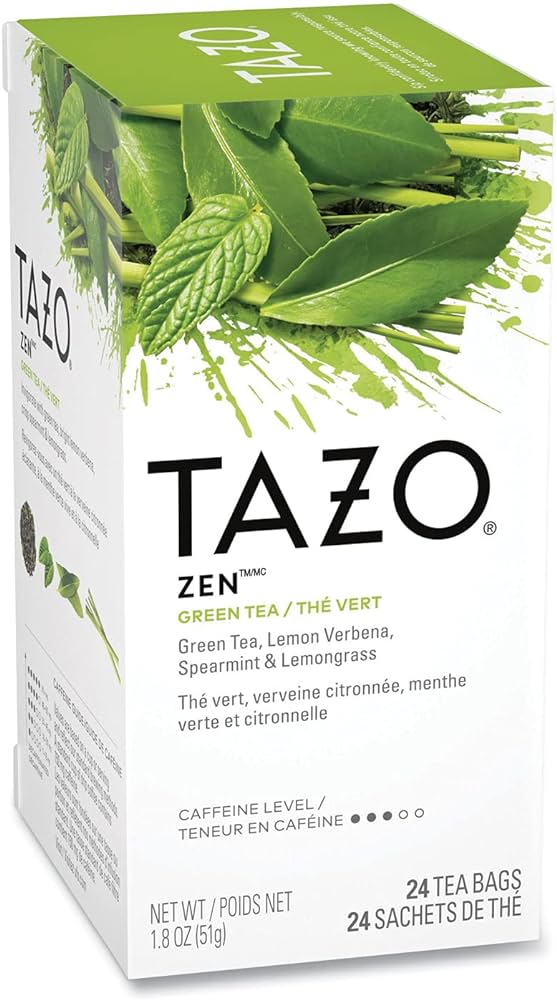
Likes
- Accessibility: Tazo green tea is widely available in supermarkets, grocery stores, and online, making it an easy choice for consumers. Its presence in major retail chains ensures that you can easily replenish your stock.
- Flavor Profiles: Known for its vibrant and bold flavors, Tazo offers unique blends like Zen, which combines green tea with lemongrass and spearmint, creating a refreshing and invigorating cup.
- Affordable: Tazo green tea provides good value for money. It offers quality flavors at a price point that is accessible to most consumers, making it a popular choice for daily consumption.
Dislikes
- Additives: Some Tazo blends contain natural flavors and additional ingredients, which may not appeal to green tea purists who prefer a traditional, unadulterated green tea experience.
- Consistency Issues: There can be slight inconsistencies in flavor and quality between batches, which may affect the overall tea experience for some consumers.
4. Bigelow Green Tea
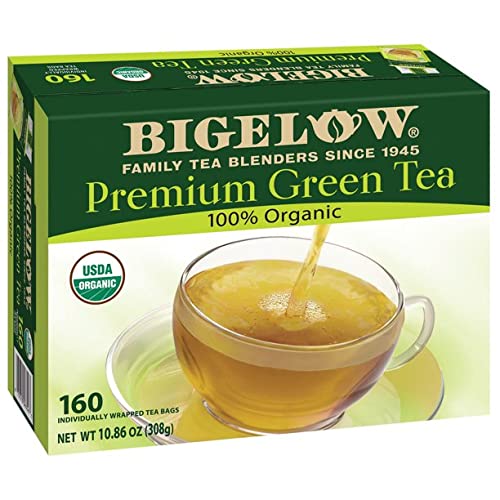
Likes
- Variety: Bigelow offers a wide range of green tea options, including classic green tea, decaffeinated versions, and flavored varieties like lemon and mint. This diversity allows consumers to find a flavor that suits their taste preferences.
- Availability: Bigelow’s products are widely available in grocery stores, supermarkets, and online, ensuring easy access for consumers looking to try their green tea offerings.
- Value for Money: Bigelow green tea is reasonably priced, making it a cost-effective option for those who enjoy drinking green tea regularly without breaking the bank.
Dislikes
- Flavor: The flavor of Bigelow green tea can be relatively bland compared to premium brands. It may lack the depth and complexity that some tea drinkers seek in their green tea experience.
- Packaging: The individually wrapped tea bags are convenient but generate more waste compared to loose leaf tea or other packaging methods. This might be a concern for environmentally conscious consumers.
5. Yogi Green Tea
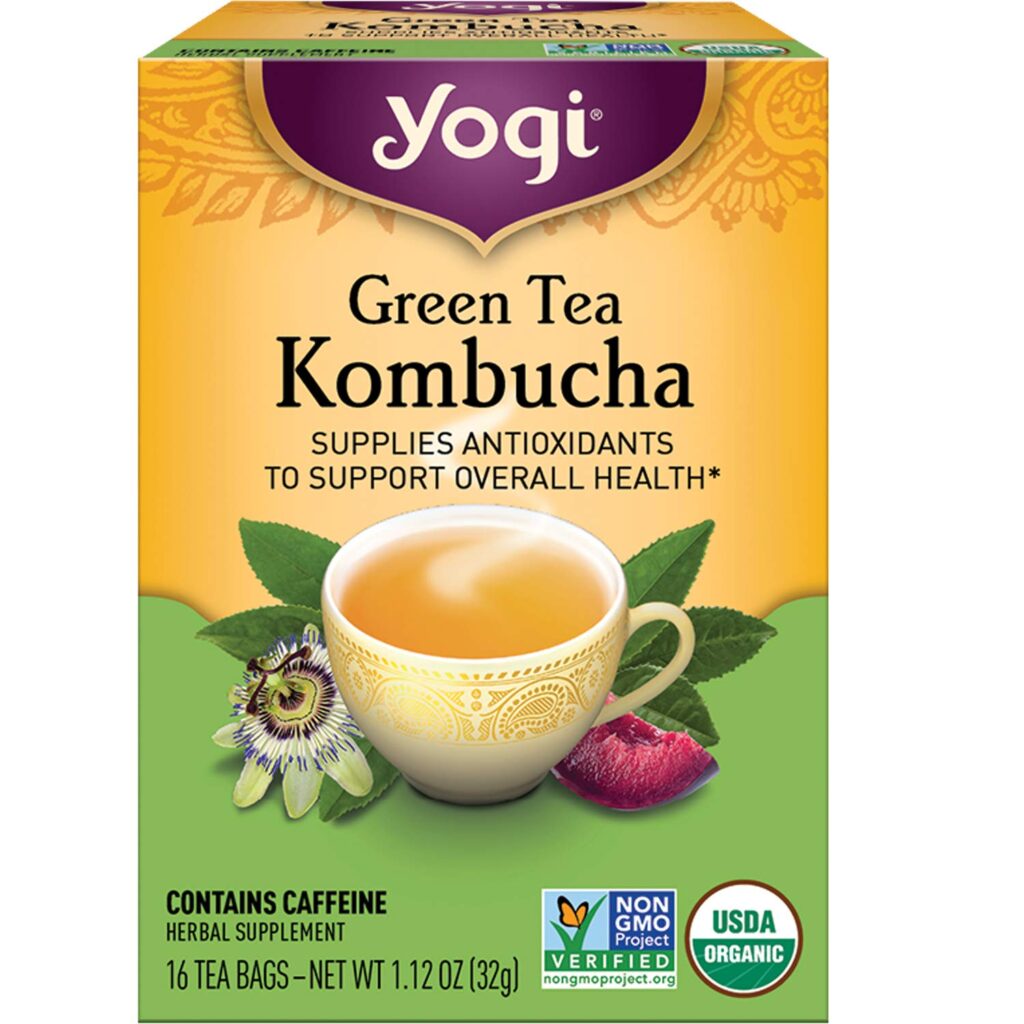
Likes
- Health Focused: Yogi teas are often blended with herbs and spices aimed at specific health benefits, such as detoxification, immune support, and stress relief. This makes their green tea blends not just a beverage but also a wellness product.
- Organic Ingredients: Yogi uses organic ingredients, ensuring that their products are free from harmful chemicals and pesticides. This commitment to quality and natural ingredients enhances the health benefits of their teas.
- Unique Blends: Yogi offers unique blends like Kombucha green tea and Green Tea Super Antioxidant, which combine green tea with various herbs and spices to create distinctive flavors and added health benefits.
Dislikes
- Complex Flavors: The additional herbs and spices in Yogi’s blends can overshadow the pure green tea flavor. This may not appeal to traditionalists who prefer a straightforward green tea experience.
- Cost: These specialized blends tend to be more expensive than standard green teas. The higher price point might deter some consumers from trying Yogi’s offerings.
6. Twinings Green Tea
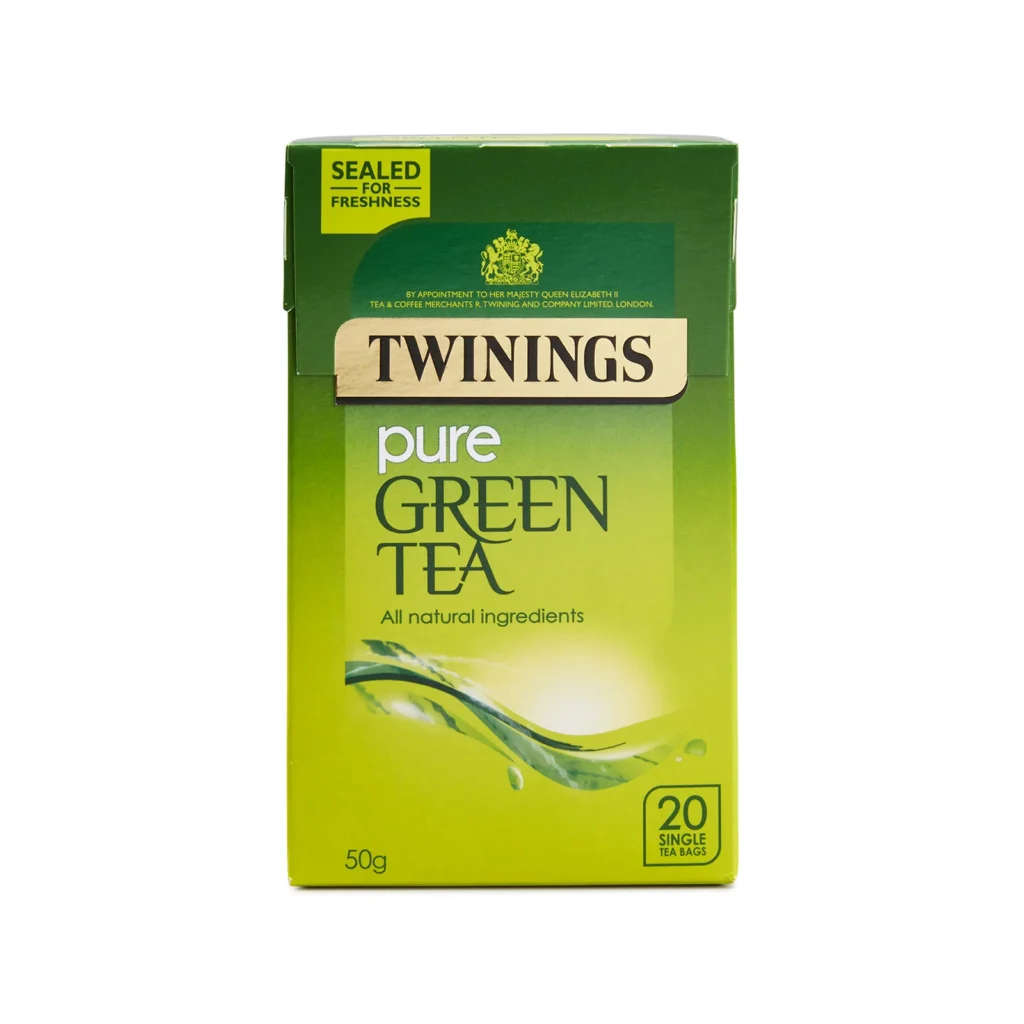
Likes
- Reputation: Twinings is a well-established brand with a long history of producing high-quality teas. This ensures a level of trust and consistency in their products.
- Flavor Options: Twinings offers a wide range of green teas, including classic, flavored, and specialty blends like Jasmine Green Tea and Lemon Green Tea. This variety caters to different taste preferences.
- Availability: Twinings products are readily available worldwide in supermarkets, grocery stores, and online, making it easy for consumers to access their green tea.
Dislikes
- Mild Taste: Some drinkers may find Twinings green tea to be too mild and not as fresh or robust as higher-end brands. The flavor might not be as pronounced for those seeking a stronger green tea experience.
- Packaging: The tea bags are not individually wrapped, which might affect freshness over time. This could be a concern for those who prefer their tea to remain as fresh as possible.
7. Lipton Green Tea
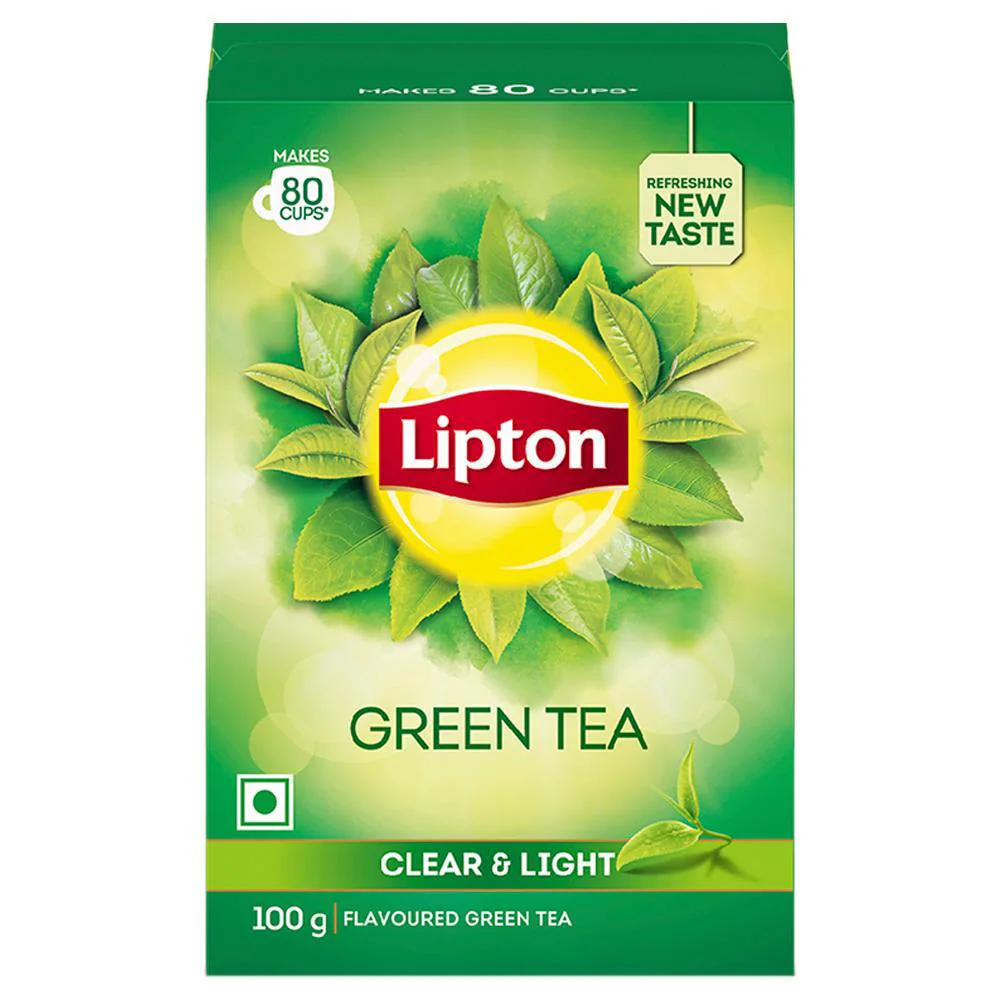
Likes
- Ubiquitous: Lipton is one of the most accessible and recognizable tea brands globally. Its widespread availability makes it a convenient choice for many consumers.
- Affordability: Lipton green tea is highly affordable, making it a great option for budget-conscious consumers who want to enjoy green tea regularly without spending too much.
- Variety: Lipton offers a range of green tea flavors, including citrus and mint, providing options for those who like to experiment with different tastes.
Dislikes
- Quality: The quality of Lipton green tea is lower compared to premium brands. It often uses fannings and dust rather than whole leaves, which can affect the overall tea experience.
- Taste: The flavor of Lipton green tea can be flat and lack the richness found in higher-quality teas. It might not satisfy those who appreciate a more complex and nuanced green tea.
8. Harney & Sons Green Tea
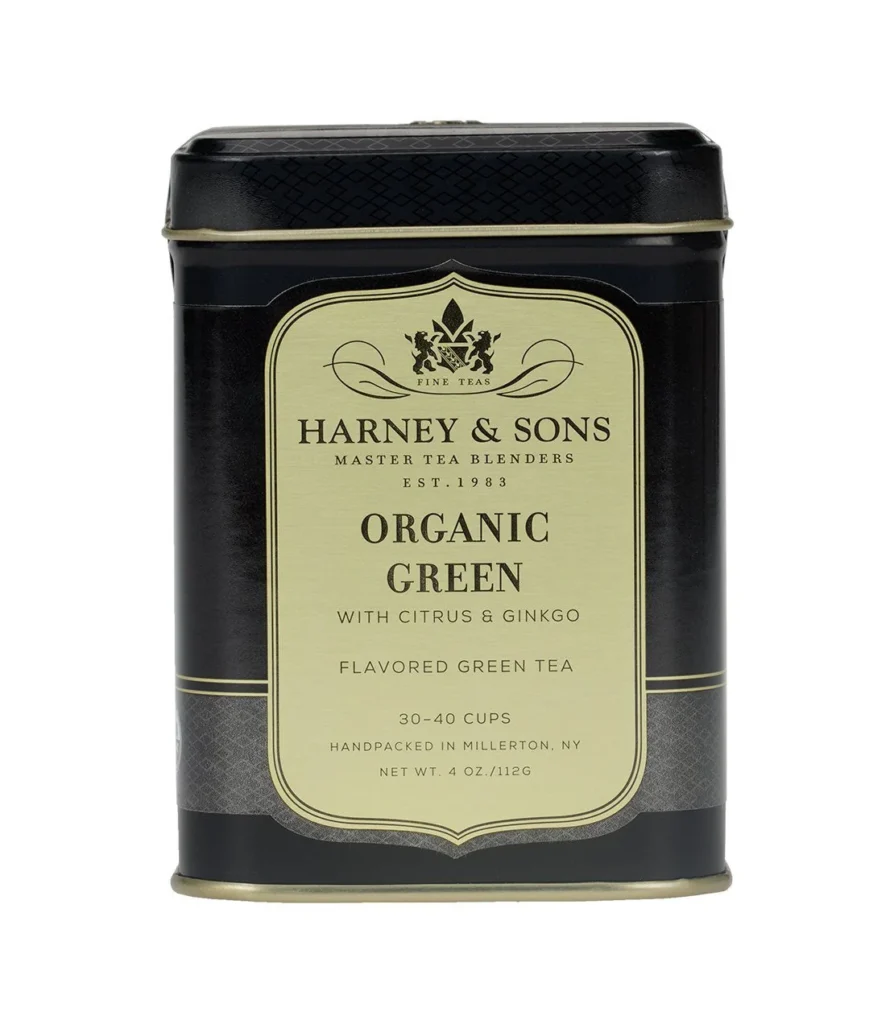
Likes
- Premium Quality: Harney & Sons is known for high-quality loose leaf teas, offering a superior tea-drinking experience with their carefully selected leaves.
- Flavor Diversity: Their range includes exquisite blends like Japanese Sencha and Tropical Green Tea, providing unique and delightful flavor profiles for green tea enthusiasts.
- Packaging: The attractive and reusable tin packaging keeps the tea fresh and makes it a great gift option. The tins are also aesthetically pleasing and can be repurposed.
Dislikes
- Cost: Premium quality comes at a premium price. Harney & Sons green tea is more expensive than many other brands, which might not be suitable for budget-conscious consumers.
- Availability: Harney & Sons products may not be available in all local stores, often requiring online purchases. This could be inconvenient for those who prefer in-store shopping.
9. Teavana Green Tea
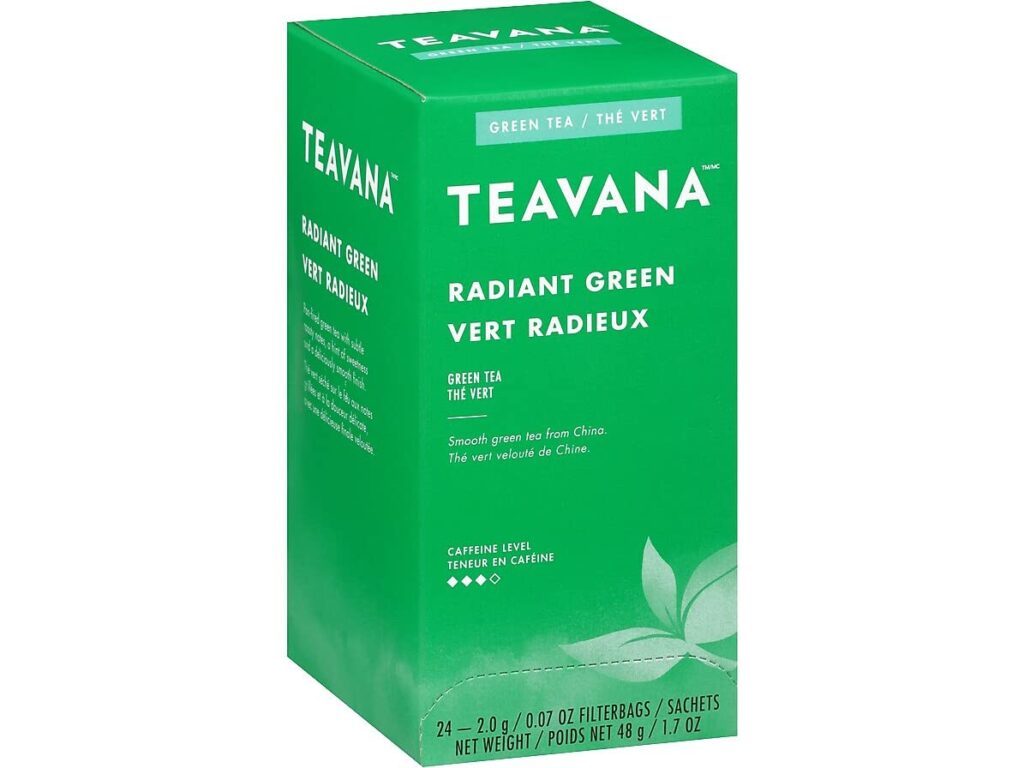
Likes
- Variety and Innovation: Teavana is known for its creative blends and flavors, such as Jade Citrus Mint and Emperor’s Cloud and Mist. These innovative combinations offer a refreshing take on traditional green tea.
- Quality: Teavana offers high-quality loose leaf teas that provide a rich and full-bodied flavor. Their teas are made with premium leaves, ensuring a superior tea experience.
- Aesthetic Packaging: Teavana’s elegant packaging makes it a great gift option. The visually appealing design adds to the overall tea-drinking experience.
Dislikes
- Price: Teavana teas are on the expensive side. The premium quality and innovative blends come at a higher cost, which might be a deterrent for some consumers.
- Accessibility: After closing its retail stores, Teavana teas are primarily available online or at select retailers. This reduced availability might be inconvenient for those who prefer shopping in physical stores.
10. Celestial Seasonings Green Tea
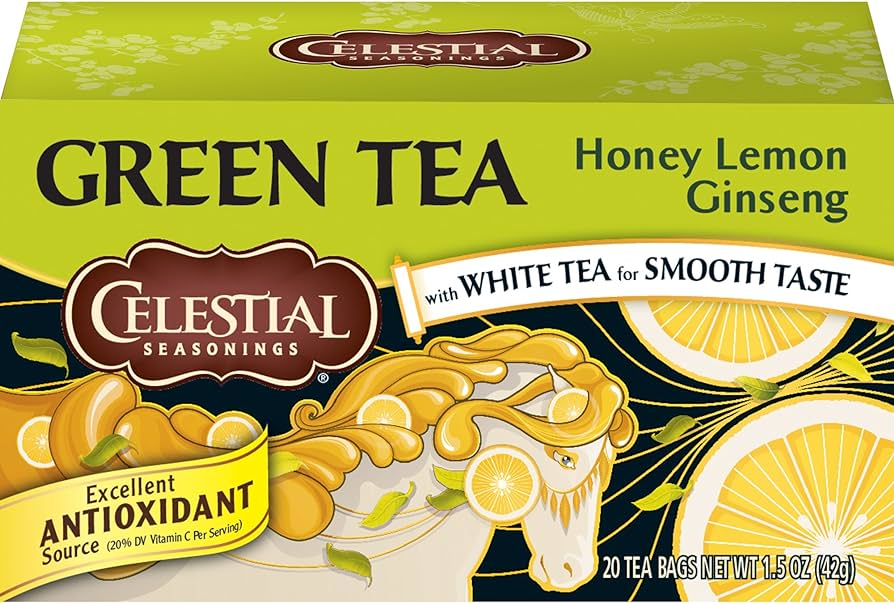
Likes
- Affordability: Celestial Seasonings offers a good balance between quality and price, making it accessible to a wide range of consumers. Their green teas are affordable and suitable for everyday drinking.
- Natural Ingredients: Celestial Seasonings uses natural ingredients and avoids artificial flavors and preservatives. This commitment to natural products ensures a healthier tea option.
- Flavor Range: Celestial Seasonings includes interesting blends such as Honey Lemon Ginseng and Decaf Green Tea. These unique flavors provide a variety of options for different taste preferences.
Dislikes
- Flavor Intensity: Some blends may lack the robustness and depth of flavor found in premium green teas. The taste might be too subtle for those who prefer a stronger green tea.
- Packaging: The tea bags are not individually wrapped, which may compromise freshness over time. This could be a concern for those who value long-lasting freshness in their tea.
Conclusion
Choosing the right green tea brand depends on your personal preferences, budget, and the specific attributes you value in a tea. Whether you prioritize organic ingredients, bold flavors, or affordability, there’s a green tea brand out there to meet your needs. Explore these options to find the perfect cup of green tea that suits your taste and lifestyle.




